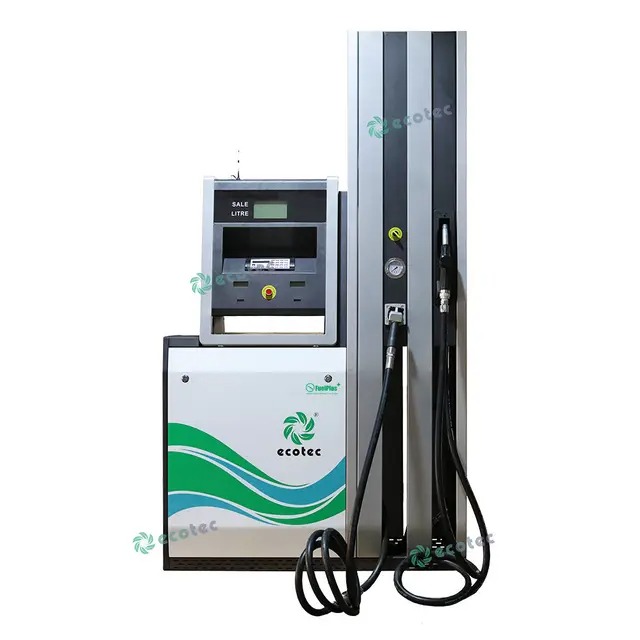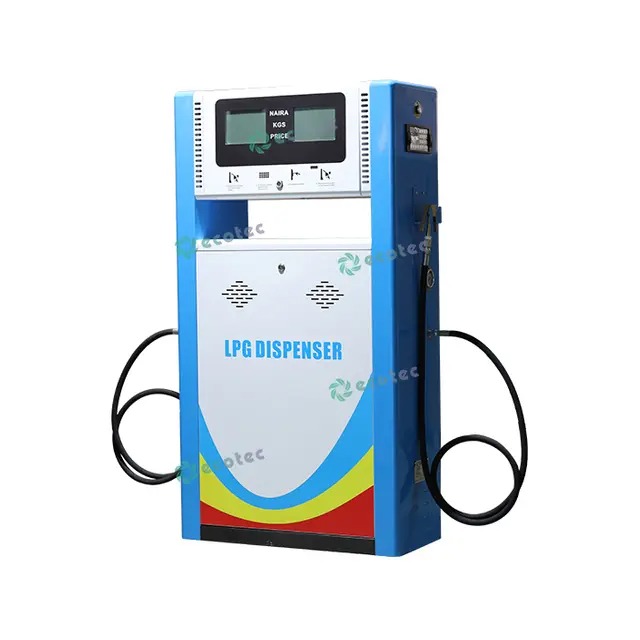
Liquefied Petroleum Gas (LPG) is a versatile fuel used for cooking, heating, and powering vehicles, among other applications. One of the crucial components in handling LPG is the LPG compressor, a device that plays a significant role in the efficient and safe transportation and storage of liquefied gas. This article delves into the details of what an LPG compressor is, how it works, and its importance in the LPG industry.
Introduction
An LPG gas compressor is a mechanical device used to compress liquefied petroleum gas (LPG) for transportation, storage, and efficient handling. By increasing the pressure of LPG, the compressor converts it from a gas to a liquid state, making it easier to transport in pressurized tanks. The compressor is an essential piece of equipment in many industries, particularly in the oil and gas sector, where large quantities of LPG need to be transferred safely and efficiently.
LPG compressors help in unloading and loading gas from tankers, storing it in tanks at fuel stations, and assisting in the liquefaction process. This equipment is crucial for ensuring that the LPG is stored at the right pressure and temperature, preventing dangerous leaks and ensuring smooth operations.

How Does an LPG Gas Compressor Work?
An LPG compressor operates by using mechanical energy to increase the pressure of LPG. The basic process involves a positive displacement mechanism where gas is drawn into a chamber and compressed before being released at a higher pressure. The key to this operation is creating enough force to maintain the LPG in a liquid state, which allows it to be stored or transported more easily.
Here’s a basic breakdown of how the process works:
Intake: LPG gas enters the compressor chamber at low pressure.
Compression: The gas is compressed using pistons or screws, raising the pressure.
Discharge: The high-pressure LPG is expelled from the compressor, ready for storage or transport.
Types of LPG Compressors
LPG compressors come in various types, each suited to different needs and applications. These can be broadly categorized into:
Piston Compressors: These are commonly used for applications where the gas needs to be compressed at higher pressures. They work by using pistons within cylinders to compress the gas.
Screw Compressors: These compressors are more efficient and typically used for continuous operations where a steady flow of gas is needed. They are quieter, have fewer moving parts, and require less maintenance than piston compressors.
Diaphragm Compressors: Used in environments where the LPG must remain uncontaminated by oils or other materials. These compressors use flexible diaphragms instead of pistons to compress the gas.
The choice of compressor depends on several factors, including the required pressure, the volume of gas being compressed, and the specific application.
Key Applications of LPG Gas Compressors
LPG compressors are crucial in several industries and applications:
LPG Transportation: LPG is transported in bulk to various locations, and compressors are necessary for loading and unloading the gas from tanker trucks. Compressors help maintain the gas at the correct pressure and prevent dangerous leaks.
Storage Systems: LPG is often stored in large tanks at fuel stations or industrial facilities. Compressors maintain the pressure inside these tanks, ensuring that the LPG remains in liquid form for easier handling.
Industrial Use: LPG compressors are used in various industrial processes, from powering equipment to providing fuel for heating or cooking in factories and plants.
Residential Use: In homes that use LPG for heating or cooking, small compressors may be used in portable gas tanks to regulate the pressure for safe use.
Each of these applications highlights the vital role LPG compressors play in ensuring the safety, efficiency, and reliability of LPG systems.
Advantages of Using LPG Compressors
LPG compressors bring a variety of benefits to industries that deal with liquefied gas. Here are some of the main advantages:
Increased Storage Efficiency
By compressing LPG into a liquid state, these compressors make it possible to store large quantities of gas in relatively small tanks. This results in more efficient storage and transportation.
Improved Safety
LPG compressors help maintain the gas at the correct pressure, preventing leaks and ensuring the safe storage and handling of the gas. By using compressors, the risk of accidents due to over-pressurization or gas leakage is minimized.
Energy Efficiency
Compressors are designed to work efficiently, minimizing energy consumption while maximizing output. Some compressors are even equipped with advanced technologies to ensure optimal energy use, which helps reduce operational costs.
Reduced Environmental Impact
By compressing and storing LPG more efficiently, the compressor reduces the environmental footprint of LPG transportation and storage. The compressors can also prevent gas wastage during loading and unloading operations.
How to Choose the Right LPG Gas Compressor
When selecting an LPG compressor, several factors need to be considered to ensure optimal performance and safety:
Compression Capacity: The amount of LPG to be compressed and the desired pressure will determine the size and type of compressor required.
Durability and Reliability: LPG compressors need to operate in harsh conditions, so it is important to choose equipment that is built to last and can handle continuous use.
Energy Efficiency: As LPG compressors can be energy-intensive, it is essential to choose one that offers high energy efficiency to reduce long-term costs.
Maintenance Requirements: Some compressors require more maintenance than others. For example, piston compressors need more regular attention compared to screw or diaphragm compressors.
Below is a table summarizing key considerations when selecting an LPG compressor:
| Factor | Consideration |
| Compression Capacity | Match the required gas volume and pressure for the application. |
| Durability and Reliability | Choose robust models for long-lasting performance. |
| Energy Efficiency | Opt for energy-efficient compressors to minimize operational costs. |
| Maintenance Requirements | Select compressors with low maintenance needs for ease of use. |

Maintenance and Care of LPG Compressors
LPG compressors, like all machinery, require regular maintenance to ensure optimal performance and longevity. Here are some basic maintenance tips:
Regular Inspections: Check the compressor’s components, including pistons, seals, and valves, for wear and tear.
Lubrication: Keep moving parts well-lubricated to prevent friction and ensure smooth operation.
Check Pressure Levels: Ensure that the compressor is maintaining the correct pressure for the safe operation of the LPG system.
Clean the Air Filters: Dirty air filters can reduce compressor efficiency, so regular cleaning is essential.
Conclusion
An LPG compressor is a vital piece of equipment in the safe and efficient handling of liquefied petroleum gas. By compressing LPG into a liquid state, these devices enable the safe storage, transportation, and use of gas. Whether used in industrial applications, residential settings, or during transportation, LPG compressors are essential for maintaining the integrity of the entire LPG supply chain. Understanding how they work, their types, applications, and maintenance requirements is crucial for anyone involved in the LPG industry.
FAQ
1. What is the purpose of an LPG compressor?
An LPG compressor increases the pressure of LPG, converting it into a liquid state for easier storage, transport, and handling.
2. Can LPG compressors be used for both residential and industrial applications?
Yes, LPG compressors are used in a wide range of settings, from small portable units for residential use to large, industrial-grade compressors for commercial and transportation purposes.
3. How does an LPG compressor ensure safety?
LPG compressors maintain the gas at the correct pressure, preventing leaks and over-pressurization, which ensures safe handling and storage.
4. What are the common types of LPG compressors?
The three common types are piston compressors, screw compressors, and diaphragm compressors, each with unique features suited to different needs.
5. How do I maintain my LPG compressor?
Regular maintenance includes inspections, lubrication, checking pressure levels, and cleaning air filters to ensure optimal performance and longevity.

















